Safe sleep when it comes to babies is a topic that cannot be discussed enough!
When parents bring a newborn home, safety is always the priority. I have watched, I have seen.
As a postpartum doula, I have been in more homes than you can imagine and watched as new parents change a first diaper.
They tenderly remove exterior garments, gently supporting each limb. They slowly unsnap the three buttons of the “onsie” and nervously lift their tiny baby’s legs and bottom to move it out of the way. With caution similar to deactivating a bomb, the parent opens the diaper’s tabs. Wiping and cleaning is an all morning process and the profuse apologizing never seems to subside.
This is often when I whisper in the new parent’s ear, this simple reminder…
That baby crammed its way through your vagina!
I think it’s gonna be ok! We have a chuckle and the mood lightens.
But there is no way to lighten the mood when unsafe sleep leads to the unthinkable and for this reason, we want to be sure that you have access to the safe sleep guidelines!
The following are the safe sleep guidelines:
- Back to sleep for every sleep.
- Use a firm sleep surface.
- Breastfeeding is recommended.
- It is recommended that infants sleep in the parents’ room, close to the parents’ bed, but on a separate surface designed for infants, ideally for the first year of life, but at least for the first 6 months.
- Keep soft objects and loose bedding away from the infant’s sleep area to reduce the risk of SIDS, suffocation, entrapment, and strangulation.
- Consider offering a pacifier at nap time and bedtime.
- Avoid smoke exposure during pregnancy and after birth.
- Avoid alcohol and illicit drug use during pregnancy and after birth.
- Avoid overheating and head covering in infants.
- Pregnant women should obtain regular prenatal care
- Infants should be immunized in accordance with recommendations of the AAP and Centers for Disease Control and Prevention.
- Avoid the use of commercial devices that are inconsistent with safe sleep recommendations.
- Do not use home cardiorespiratory monitors as a strategy to reduce the risk of SIDS.
- Supervised, awake tummy time is recommended to facilitate development and to minimize development of positional plagiocephaly.

